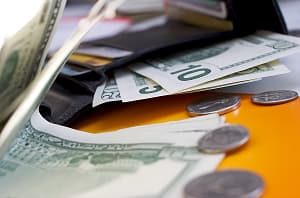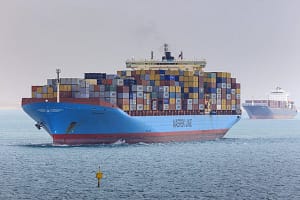Unanimous agreement among entrepreneurs
On 18 September, the Scottish public will make what is probably the biggest decision in the UK’s history.
The question will be: “Should Scotland be an independent country, yes or no?”
We put this question to London business leaders.
Everyone we asked said that Great Britain would NOT be as great if Scotland became independent.
Their concerns included everything from “currency fluctuations” to the horror of “Scotch becoming an imported drink”.
Take a look at what London entrepreneurs have to say:
Jon Moulton, chairman, Better Capital:
“Scotland should not be independent. It’s too small and too dependent on oil for its own long-term good.
“Despite it being contrary to the vaulting ambition and words of the noisy orator Alex Salmond, the rest of the UK has not exploited Scotland for at least a century. The Scottish standard of living has made respectable progress and in some ways (university fees, care homes), the Scots do better than those on the other side of the currently notional border. This is not trying to escape from a reconquered Soviet province.
“Being bigger brings economies and power to Great Britain as a whole. If this extraordinary schism actually happens, influence will decline and the economy of both bits will be weaker.
“It will be a very bad thing if due to inadequate attention from Westminster this ends with a Yes vote. Let’s really hope it doesn’t.”
John Mills, founder, JML Group:
“I am half Scots and, although now based in London, I have lived in Scotland for several years in the past. I therefore understand only too well the pull of Scottish nationalism. I don’t, however, believe that Scotland would be better off as a country separate from the UK. Sentiment and irritation with Westminster may pull one way but political and economic reality surely pulls more strongly in the other direction.
“This is why my guess is that the outcome of the Scottish referendum will be a No vote, even if it is by a narrow margin. I would vote No myself, given a chance to do so, but of course living in England, despite my Scottish ancestry, I have no vote to cast.”
Stephen Fear, founder & chairman, Fear Group, and entrepreneur-in-residence at the British Library:
“Life after independence would not be a bed of roses for the Scottish people. Whilst they will be able to ‘use’ the pound they will no longer be ‘owners’ of it. Ownership of one of the world’s major currencies (and its printing presses) will belong to England, Wales and Northern Ireland who will remain the United Kingdom.
“Major construction projects totalling in excess of £7bn will be in danger, putting thousands of Scottish jobs at risk. A significant number of future construction projects planned across Scotland are in the renewable energy sector which is subject to a UK-wide subsidy. This puts those projects in a difficult position, particularly as most are proposed by companies outside Scotland.
“I agree that too much power exists in London, but this affects areas like Yorkshire as well, where its 5.3 million population is similar in size to Scotland.
“What is needed is devolution of power to all regions of our United Kingdom not just one.”
Dan Wagner, CEO, Powa:
“With the historic vote just days away, there is still a worrying amount of uncertainty around key financial and economic points that will have a major impact on businesses on both sides of the border.
“Debates on currency, interest rates, taxation and regulation, among other crucial elements, still have not yielded a solid roadmap. The fact that Alex Salmond and the three main Westminster parties remain at loggerheads over whether or not an independent Scotland will be able to keep the pound is an example of just how much remains up in the air.
“Despite the argument for Scotland’s independent potential wealth, predictions of higher interest rates, higher taxes and higher costs will make the future very difficult for Scottish businesses. The fact that RBS and Lloyds saw their shares jump after announcing they would leave an independent Scotland speaks volumes on the level of financial confidence.
“This uncertainty alone has already seen businesses of all sizes across the UK firmly in the ‘No’ camp, and were Scotland to separate the instability would wreak havoc on UK businesses as well as those in Scotland. The whole of the UK has worked hard to finally emerge from the global recession, it would be a colossal shame to see this undone. A vote to preserve the Union is the key to continued growth and prosperity for all concerned.”
Ajay Chowdhury, CEO, Seatwave:
“While Scottish Independence is ultimately a decision for the Scots, from a personal point of view I hope they vote to stay part of the union. This is really for two main reasons – one economic and one emotional.
“The economic reason revolves around ensuring that the UK plays an increasing role in the world’s technology development. Scotland’s Silicon Glen is one of the three key tech clusters in the UK (The others being London’s ‘Silicon Roundabout’ and Cambridge’s ‘Silicon Fen’).
“Silicon Glen has shown an amazing resurgence in the last decade as it has reinvented itself after the crash in the semiconductor/electronics market in 2000 to focus more on software with great companies like RockStar North (developers of Grand Theft Auto); Amazon’s first software development centre outside the US and IndigoVision – a leader in IP Surveillance cameras.
“For the UK to box above its weight it needs these companies and their strong links with the rest of the UK to succeed in the tech world. Emotionally I want Scotland to remain in the Union as Glasgow was one of the first places I worked in when I first came to the UK and I have many happy memories of the city and of travelling to some of the most beautiful parts of the country. Finally I would hate the idea of Scotch becoming an imported drink!”
Hugh Chappell, serial entrepreneur, advisor and investor:
“I find myself naturally anxious and genuinely highly concerned about the forthcoming vote on whether Scotland should remain a part of the United Kingdom or go it alone.
“My gut instinct is that the sum of the parts (in this case England, Northern Ireland, Scotland and Wales) is greater than the individual components.
As businessman, however, I see borders as creating barriers to free trade and with great uncertainty regarding currency, taxation and the impact on the economies on both sides see independence as being counterproductive to British people. My message to my fellow citizens in Scotland is that we are indeed better together.
“And finally, I must say I favour much less government around the entire country, you see I trust the British people and not the many politicians who seek to divide us and bolster their own careers.”
Piers Daniell, MD, Fluidata:
“As the United Kingdom, we punch way above our weight on the world stage and have achieved many things. Our nation, and its position in the world, would be greatly affected if Scotland was to break off.
“This doesn’t mean that Scotland shouldn’t maintain its identity and its ability to control certain aspects of day-to-day governance. But in my view, complete independence is far outweighed by the benefits the country gets from being a part of the United Kingdom.
“For example, Scotland has some of the most rural locations in the UK and is in need of broadband in these areas so that people c
an work from home and the country can continue to flourish. Without the support of the UK and current initiatives in rural broadband delivery, Scotland is likely to fall behind.
“In order to make the UK work for everyone, we need to look at why so many in Scotland think they would be better off independent, and work together in order to move forward as a united nation.”
Now read:

Downing Street fails spectacularly with its show of Scottish support








Leave a Comment